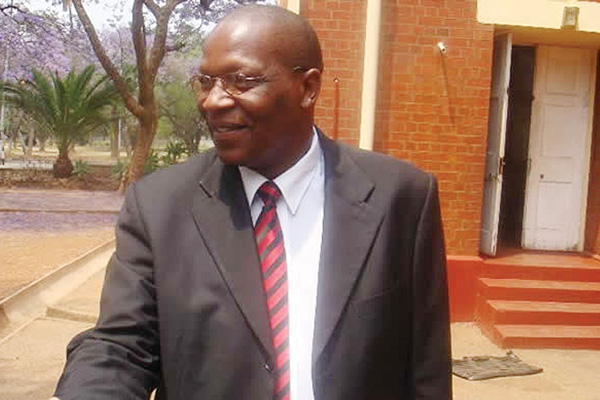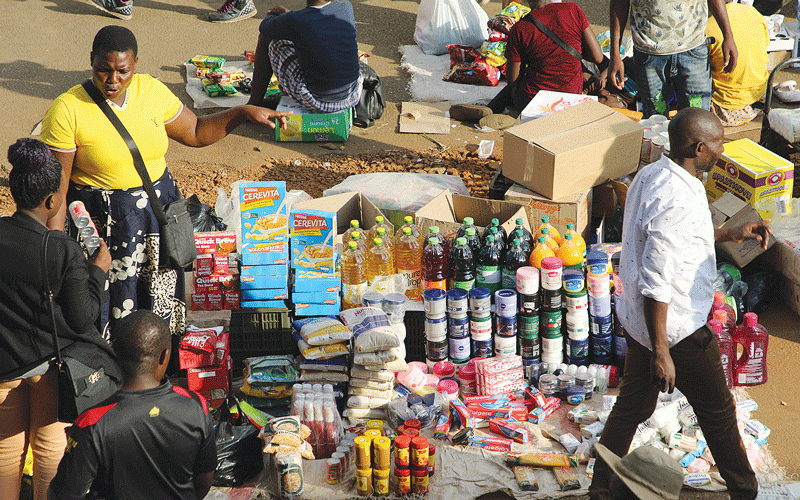
A CHAMPION of rural libraries and former Dean of the National University of Science and Technology (NUST), Lawton Hikwa subscribed to the creation of a just society where libraries and information services were made available to all people, including rural communities, as a matter of right and not charity. BY OBADIAH T MOYO
In 1990, at the founding of the Rural Libraries and Resources Development Programme (RLRDP), Hikwa joined the ranks of RLRDP and offered free of charge training courses in Basic Skills of Librarianship to Rural Teachers and Community Librarians.
He produced simplified training handbooks that were used in the training sessions.
Hikwa became a regular visitor to Nkayi (Matabeleland North), Nyanga (Manicaland) and a few other districts where trainings were held, leading to the establishment of a number of viable library projects within mainly primary schools, a few at secondary schools and some at community libraries initiated by Nkayi Rural District Council under the leadership of Phillip Ndlovu and Nyanga Rural District Council. The work of the RLRDP quickly spread and in 1992, we opened our first administrative offices in Bulawayo.
In 1994 we opened two field offices, one in Nkayi and the other in Nyanga.

In 1995, Hikwa joined the RLRDP secretariat as Head of Training and Publications, where he developed an impressive rural libraries training programme that became the envy of other African countries.
He travelled the breadth and length of Zimbabwe, offering training courses to communities that had started library projects, regardless of size and volume of books found in their shelves.
- Chamisa under fire over US$120K donation
- Mavhunga puts DeMbare into Chibuku quarterfinals
- Pension funds bet on Cabora Bassa oilfields
- Councils defy govt fire tender directive
Keep Reading
He took a keen interest in the revision of our Rural Libraries Manual that was developed in 1992 by librarians Bonani Hadebe and Elisha Chiware.
A new revised version of the manual done in 1999 has an additional chapter by Hikwa.
A number of countries, including Ghana, Uganda, Zambia, Malawi and Mozambique, among others, sent their librarians on attachment to RLRDP and received mentorship from Hikwa.
He represented RLRDP at conferences and presented papers at various library conferences in South Africa, Ghana, the United Kingdom and Germany, just to mention a few.
Being in charge of book purchases, Hikwa promoted the buying of locally-produced books.
With funding from NORAD, DANIDA and Book Aid International, he was able to provided relevant and appropriate books to rural school/community libraries.
In the year 2000, he produced a training package, Rural Library and Information Services Management, a self-help training package for rural librarians and their management committees.
When he left RLRDP in 2000 to join full-time employment at NUST, Hikwa had trained about 3 000 teacher librarians, community librarians and library management committees (LMCs) members in provinces of Matabeleland North, Matabeleland South, Midlands, Mashonaland West and Manicaland.
Hikwa later joined the RLRDP board as its secretary, a position he held up to his untimely death.
RLRDP chairman Timothy Chiganga, who is Education Officer with the Ministry of Primary and Secondary Education in Nyanga and also board chairman of the Nyanga District Library, had this to say about the passing-away of Hikwa: “We have lost a pillar of rural libraries, who, as we restructure our operations, had a big role to play, especially in the area of integrating Information Communication Technologies (ICTs) within our rural libraries. Indeed, he will be missed by all his friends and colleagues scattered all over the country.”
In my handbook, soon to be published, on the impact of rural libraries, Hikwa gives the introduction to the handbook, and I give below some of his views: “The handbook situates the challenge of the information gap between urban and rural communities and how humble efforts such as the provision of library and information services can assist in minimising and/or closing that gap. Access to information and knowledge as a basic human right is emphasised. Academics and library and information professionals are challenged to take cognisance of the contribution of library and information services to satisfactory livelihood and also to advocate for the support of such services as a public good.”
Hikwa was undoubtedly one of the sharpest academics in the field of libraries and information services that this country ever produced. Above all, he was an expert in the field of rural libraries and community information services, a skill he gained through his work and association with RLRDP and rural communities themselves.
A critical thinker and role model to many, we will forever remain grateful for his contribution in advancing the cause of rural libraries and information services.
My wish for Hikwa is that as an honour to him, I or any representative of RLRDP, will in the future, be able to present books and computers to a rural library that is named after him.
May his dear soul rest in eternal peace.
Goodbye, colleague, brother and friend!
Obadiah T Moyo is secretary-general of Rural Libraries and Resources Development










